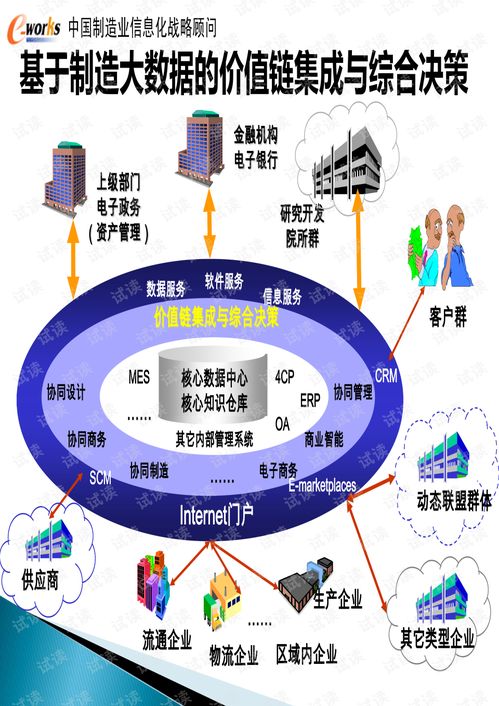Navigating the Era of Big Data: Key English Terminology
In the age of big data, understanding the terminology is crucial for effective communication and collaboration. Whether you're a data scientist, a business analyst, or just someone interested in the field, mastering the language of big data opens doors to new opportunities and insights. Below are key English terms commonly used in the realm of big data:
1. Big Data (大数据)
Definition
: Big data refers to large and complex datasets that traditional data processing applications are inadequate to deal with.
Example Usage
: "Our company is leveraging big data analytics to gain valuable insights from massive amounts of customer information."2. Data Mining (数据挖掘)
Definition
: Data mining involves discovering patterns and extracting useful information from large datasets.
Example Usage
: "We use data mining techniques to identify trends and patterns in consumer behavior."
3. Machine Learning (机器学习)
Definition
: Machine learning is a subset of artificial intelligence that enables systems to learn and improve from experience without being explicitly programmed.
Example Usage
: "Our recommendation engine uses machine learning algorithms to personalize user experiences."4. Predictive Analytics (预测分析)
Definition
: Predictive analytics involves using data, statistical algorithms, and machine learning techniques to identify the likelihood of future outcomes based on historical data.
Example Usage
: "By employing predictive analytics, we can anticipate customer needs and tailor our marketing strategies accordingly."5. Data Visualization (数据可视化)
Definition
: Data visualization is the graphical representation of information and data to make it easier to understand and interpret.
Example Usage
: "Our dashboard provides intuitive data visualizations that allow stakeholders to grasp key insights at a glance."6. Data Warehouse (数据仓库)
Definition
: A data warehouse is a central repository where data from various sources is stored, organized, and analyzed for decisionmaking purposes.
Example Usage
: "Our company has invested in a data warehouse to streamline data management and facilitate business intelligence initiatives."7. Hadoop
Definition
: Hadoop is an opensource framework used for distributed storage and processing of large datasets across clusters of computers.
Example Usage
: "We utilize Hadoop for scalable and costeffective storage and analysis of our big data assets."8. Cloud Computing (云计算)
Definition
: Cloud computing involves delivering computing services—including storage, databases, networking, software, and analytics—over the internet (the cloud) to offer faster innovation, flexible resources, and economies of scale.
Example Usage
: "Migrating our data infrastructure to the cloud has enabled us to achieve greater agility and scalability."9. Internet of Things (IoT) (物联网)
Definition
: The Internet of Things refers to the network of interconnected devices embedded with sensors, software, and other technologies for the purpose of exchanging data with other devices and systems over the internet.
Example Usage
: "Our smart home devices are part of the Internet of Things ecosystem, allowing users to remotely monitor and control their homes."10. Data Privacy (数据隐私)
Definition
: Data privacy concerns the protection of sensitive information from unauthorized access, use, or disclosure.
Example Usage
: "Ensuring compliance with data privacy regulations is paramount in our data handling practices."Conclusion
Mastering the terminology of big data is essential for navigating this rapidly evolving field. Whether you're discussing machine learning algorithms or implementing predictive analytics, a solid understanding of these terms empowers you to make informed decisions and drive innovation in the era of big data.
标签: 大数据时代英语作文题目 大数据时代英语翻译 大数据时代英语教学的变化 大数据时代英语专用名词有哪些 大数据时代英语教学理念与实践



还木有评论哦,快来抢沙发吧~